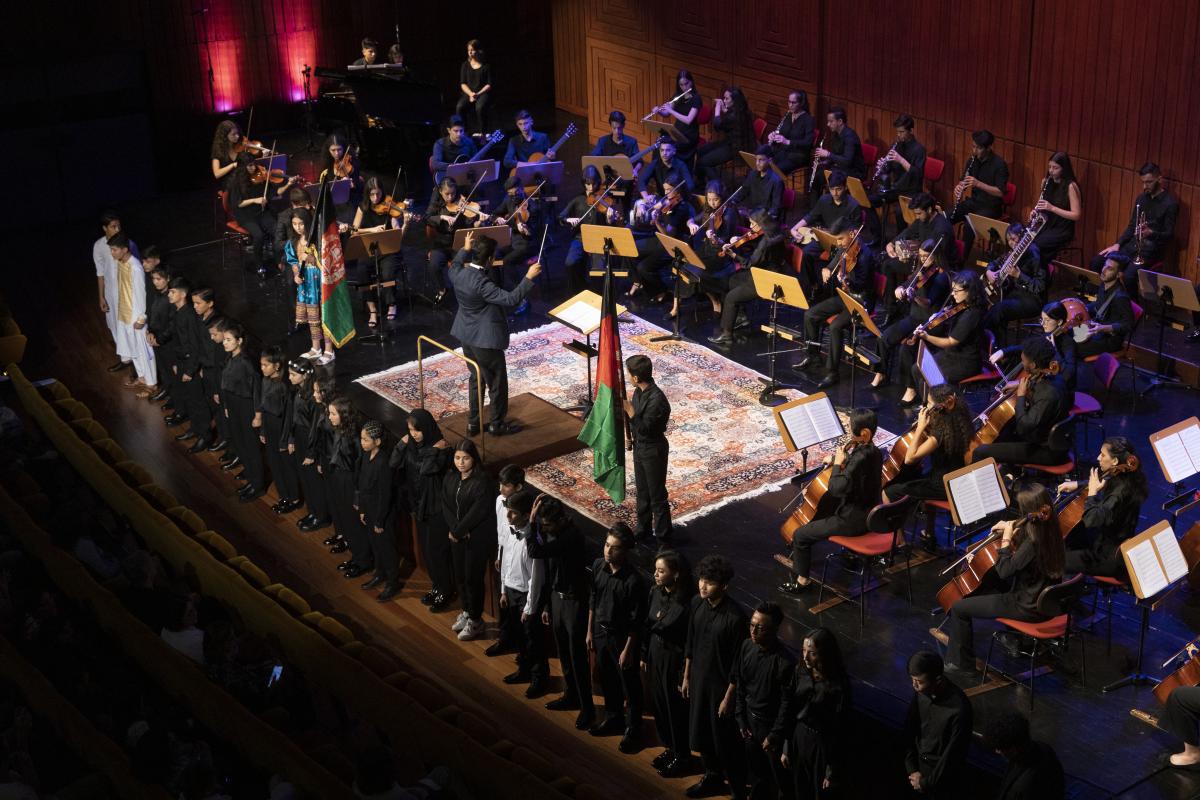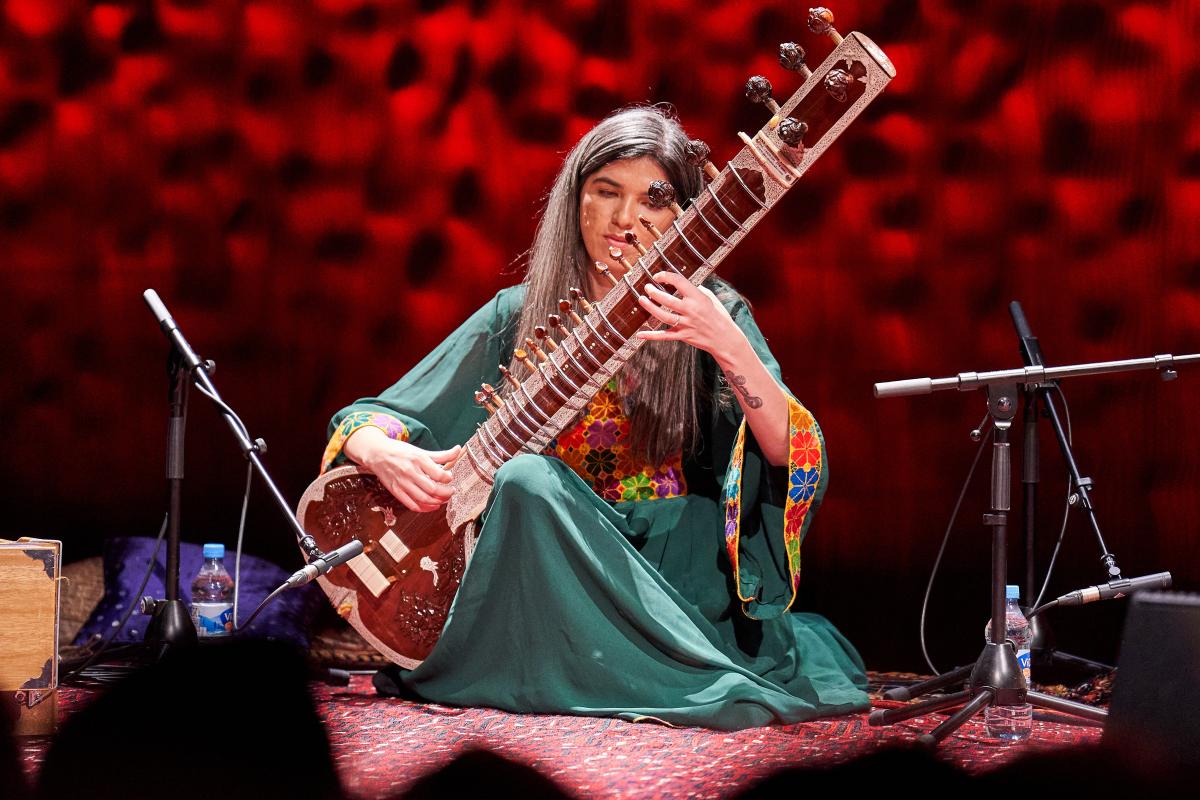Exotic sounds could be heard from the roof of Switzerland for UNHCR’s office in Geneva last week. Two young men, dressed in traditional Afghan fashion, sat on the rooftop and started playing the rubab - a lute - and the tabla drums. The melodies transported the audience to a distant world, and indeed the two young musicians are from Afghanistan. They are part of the Afghan Youth Orchestra, which visited Geneva and played several concerts there - in addition to the rooftop concert with us, also together with the Geneva Chamber Orchestra in the Victoria Hall.
About 40 young musicians between 14 and 20 years belong to the Afghan Youth Orchestra. They had studied traditional Afghan and classical Western music at the Afghanistan National Institute of Music ANIM in Kabul and dreamed of careers in the arts - until two years ago, when the Taliban unexpectedly seized power in the country again. At that time, Ahmad Naser Sarmast, founder and director of ANIM, quickly realized: the students must leave Afghanistan as soon as possible, along with the rest of the institute's occupants.
"Because we had always worked for democratic change in our country, stood up for women's rights. These are all values that go completely against the beliefs of the Taliban. And we also knew that with the arrival of the Taliban, the days of music were numbered."

Portugal granted asylum to the refugees. The government there was very supportive, says Ahmad Naser Sarmast. He is immensely grateful for that. But such a new start in a foreign country is not easy, of course. Getting all the necessary documents, learning a new language, integrating into a foreign culture:, that's quite nerve-wracking.
"But refugees must be aware that only they themselves can rebuild their lives. They can expect safety and an opportunity from their host country - the rest is up to them."
Ahmad Naser Sarmast speaks from experience. He has already been a refugee twice in his life. Shortly after he had graduated from university in Russia, the Taliban came to power in his home country for the first time. He and his family were eventually granted asylum in Australia. Music has always given him courage in these difficult times:
"Music has a healing effect. That can be very important, especially for traumatized refugees. It also gives back a bit of normality when nothing else is the way it was."
The Afghan Youth Orchestra is now touring Europe from Portugal. In the past, they mainly celebrated music, but today the message is different: The world should look at the fate of women in Afghanistan, who were practically erased from society there under the Taliban. They lost all rights, are no longer allowed to go to school, work, or even walk the streets alone.
"And we also want to draw attention to the artistic rights that Afghans have been deprived of," Ahmad Naser Sarmast continued. "They no longer have the right to listen to or make music. Afghanistan is the only country in the world without music. Can you imagine?"

The two music students on the rooftop of Switzerland for UNHCR finish their little concert, beaming to the applause of the audience. They and their colleagues should be allowed to continue living their dreams; that is the primary goal of their escape, explains Ahmad Naser Sarmast, founder of the Afghan National Institute of Music ANIM. And when Afghanistan is liberated one day, they can return and bring music back to their country.
Most of the young people had to flee their homeland without their families, which was traumatizing for many. They have not seen them since 2021. But once again, Portugal's government showed their support: the parents and siblings will soon be allowed to join them. If all goes well, the families will be reunited as early as October.